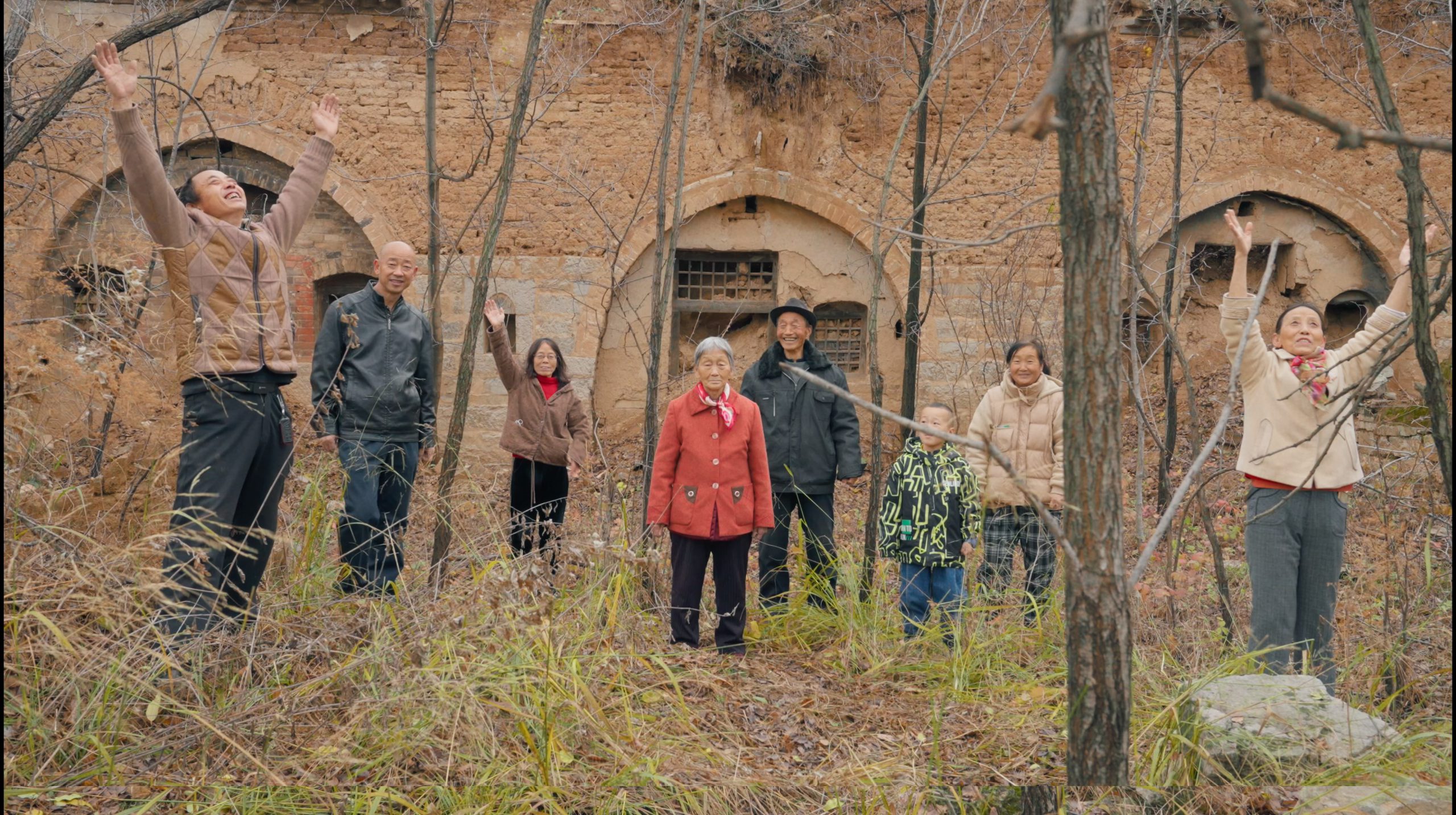
Deep in the vast mountain range of China’s Loess Plateau, Yehui Zhao found herself aboard a small tractor, hitchhiking toward what she hoped would be the remains of her great-grandfather’s now empty village.
It was 2022, and Zhao, a filmmaker, was navigating with information garnered only from word of mouth; relatives and locals had pointed her in the right direction, but she could not identify the exact location of her ancestral home, a place she was warned not to go – because of the distance – by villagers within the mountains.
Now in central-north China, nearly 8,000 miles away from her apartment in New York City, Zhao, who had spent months researching and planning, was too far along to turn back and too eager to discover the land her family had once inhabited.
Zhao was working on her documentary, May The Soil Be Everywhere, which is a story about the lost Chinese settlement Zhao’s great-grandfather had founded nearly a century ago, and where her grandmother was raised.
Zhao, who grew up in China before moving to the United States for college, found inspiration in the work of filmmaker Zhang Mengqi, who often uses figures such as her mother and grandmother to act as protagonists in her pieces. Zhao therefore looked to an “impactful feminist figure” in her life: her grandmother.
Zhao, who graduated from the Masters of Fine Arts Program at Hunter College last year, describes her grandmother as “intuitive, humorous, and loving… how she experiences the world is really interesting,” said Zhao. “She really lives in the moment.”
She knew her grandmother had left her childhood home to get married – but she didn’t know where that home was.
Zhao applied the investigative journalism tactics she’d learned as an undergraduate at Florida State University, as well as cinematic and social work studies, and through a combination of interviews, research, and calculated deliberation, she arrived at the Loess Plateau with a vague idea of where remnants of the village might be. Her first trip spanned seven months and included the hunt, the discovery, and subsequently, the necessary film work to document the project.
The village, it turns out, was a collection of cave dwellings. Zhao knew she was in the right place after she sent photos of the caves to her family, and they confirmed that they had once lived in them.
“It took me a couple of tries to find it,” said Zhao who, on her second trip into the mountains, brought the appropriate tools to bushwhack through overgrown shrubbery.
According to locals, her great-grandparents’ cave had collapsed on the inside during a rainstorm just the year before. But the external facade remained upright, and standing in front of it, Zhao felt a serene sense of pride – not only for the accomplishment of locating the home, but for the accomplishment of its creation long ago. “It felt very, very special,” she said.
The ensuing documentary, inspired by this particular moment of reclamation, tells the story of Zhao’s family and their village, and the land they cultivated across generations. May the Soil Be Everywhere explores the relationship of Zhao’s ancestors with the remote land they cultivated, and their new lives after being forced from it.
On February 5, the International Documentary Association (IDA) announced the recipients of the 2023-24 Pare Lorentz Documentary Fund. May the Soil Be Everywhere was one of the winners, and Zhao will receive $25,000 in production and post-production grants. There were 56 eligible nominees.
“It’s very meaningful to me because it’s my first feature film,” said Zhao, “It’s really nice to be recognized for the creative energy, emotion, and time I’ve put into this.”
A good portion of the funding will go to post-production expenses like animation and the development of a score. But it will also help to cover the costs of finding the village and documenting its rediscovery – a rediscovery that was not guaranteed when Zhao first decided to pursue it.
Reiko Tahara, an adjunct professor in Hunter’s MFA program and primary advisor to Zhao, witnessed the development of the documentary from its inception.
“It is a beautiful, experiential film,” Tahara said. “Because we learned and grew together for the past five years, I could see so many films we watched and texts we read in her film. It doesn’t mean she copied them, it means she digested and gave birth to a new, unique work.”
Tahara said she was most impressed with Zhao’s determination to follow her own vision.
“She is talented in knowing what works for her,” said Tahara, proudly disclosing that Zhao had rejected several of her and other advisors’ suggestions, to the benefit of the film.
Zhao’s films have been featured at venues such as the Asian American International Film Festival, UnionDocs, DOC NYC, Prismatic Ground, Microscope Gallery, Spain Moving Images Festival, Timeless Awards, and the Festival of Animated Objects.
The IDA grant constitutes the most money Zhao has been awarded to date. She hopes to release the film in the spring of 2025.
Her grandmother, the film’s protagonist, returned with her to the Loess Plateau in 2022, where Zhao filmed the reunification with her childhood home.
It was a “beautiful recalling of her past,” Zhao reminisced.

